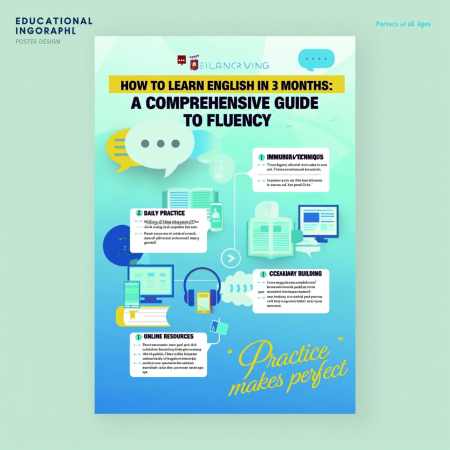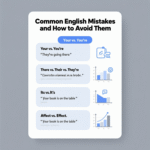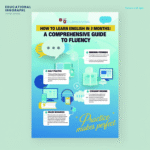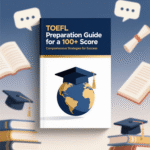Mastering English in just 3 months is an ambitious but achievable goal with the right strategies, dedication, and resources. This detailed guide provides a step-by-step roadmap to help learners develop fluency, improve pronunciation, expand vocabulary, and gain confidence in speaking, listening, reading, and writing. By following a structured plan, leveraging modern tools, and immersing oneself in the language, rapid progress is within reach. Below, we outline actionable techniques, practical tips, and proven methods to help you learn English in 3 months.
- Why Learning English in 3 Months Is Possible
- Building a Strong Foundation: The First Month
- Creating a Structured Study Plan
- Mastering Basic Vocabulary
- Understanding Core Grammar Rules
- Developing Listening Skills
- Practicing Basic Pronunciation
- Advancing Skills in the Second Month
- Expanding Vocabulary for Everyday Use
- Strengthening Grammar Knowledge
- Enhancing Listening Comprehension
- Practicing Speaking with Confidence
- Starting to Write in English
- Achieving Fluency in the Third Month
- Mastering Advanced Vocabulary
- Refining Grammar for Fluency
- Immersing in Authentic Listening
- Speaking Like a Native
- Writing with Precision and Style
- Immersion Techniques for Rapid Progress
- Leveraging Technology for Learning
- Overcoming Common Challenges
- Measuring Progress and Staying Motivated
- Recommendations and Suggestions
- Frequently Asked Questions (FAQs)
Why Learning English in 3 Months Is Possible
Achieving English fluency in 3 months requires understanding the language learning process. English, as a global language, is structured to be accessible with consistent effort. Studies suggest that with 600–750 hours of focused study, learners can reach conversational proficiency. By dedicating 8–10 hours daily, this timeline can be condensed into 3 months. The key lies in immersion, practice, and leveraging the brain’s ability to adapt through repetition and exposure.
Setting Realistic Goals for Rapid Learning
To learn English in 3 months, establish clear, measurable objectives. These goals provide direction and motivation:
-
Conversational Fluency: Hold basic conversations, express opinions, and understand everyday dialogue.
-
Vocabulary Acquisition: Learn 2,000–3,000 high-frequency words for functional communication.
-
Grammar Mastery: Grasp essential grammar rules, such as verb tenses, sentence structure, and prepositions.
-
Pronunciation Improvement: Speak clearly with accurate intonation and stress patterns.
-
Listening Comprehension: Understand native speakers in real-world contexts, such as movies or podcasts.
By breaking these goals into daily tasks, learners can track progress and stay motivated.
Building a Strong Foundation: The First Month
The first month focuses on laying the groundwork for English fluency. This involves mastering foundational skills, building vocabulary, and developing a study routine.
Creating a Structured Study Plan
A well-organized study plan is critical to learn English in 3 months. Allocate time for each language skill daily:
-
Morning (2–3 hours): Vocabulary building and grammar exercises.
-
Afternoon (2–3 hours): Listening and reading practice with authentic materials.
-
Evening (2–3 hours): Speaking and writing practice with feedback.
Use tools like Google Calendar or apps like Notion to schedule tasks and track progress. Consistency is key—aim for 8–10 hours of active study daily.
Mastering Basic Vocabulary
A robust vocabulary is the backbone of English fluency. Focus on high-frequency words used in everyday conversations. Resources like the Oxford 3000 or Anki flashcards can accelerate learning.
-
Learn 20–30 words daily: Use spaced repetition apps like Anki or Quizlet to retain words long-term.
-
Categorize vocabulary: Group words by themes (e.g., food, travel, emotions) for easier recall.
-
Use mnemonic devices: Associate words with images or stories to enhance memory.
-
Practice in context: Create sentences or short stories using new words to reinforce understanding.
By the end of the first month, aim to master 600–900 words, covering basic conversations and common scenarios.
Understanding Core Grammar Rules
Grammar provides the structure for clear communication. Focus on foundational concepts in the first month:
-
Verb Tenses: Master present simple, past simple, and future simple tenses.
-
Sentence Structure: Learn subject-verb-object patterns and question formation.
-
Articles and Prepositions: Understand the use of “a,” “an,” “the,” and common prepositions like “in,” “on,” and “at.”
-
Plurals and Possessives: Practice forming plurals (e.g., “cat” vs. “cats”) and possessives (e.g., “John’s book”).
Use resources like Grammarly or “English Grammar in Use” by Raymond Murphy for structured exercises. Complete 10–15 grammar exercises daily to build confidence.
Developing Listening Skills
Listening is crucial for understanding native speakers. Start with beginner-friendly materials:
-
Podcasts: Listen to “The English We Speak” by BBC or “ESLPod” for clear, slow-paced content.
-
YouTube Channels: Channels like English Addict with Mr. Steve offer engaging lessons.
-
Movies and TV Shows: Watch shows like “Friends” with subtitles to follow dialogue.
Practice active listening by summarizing what you hear or repeating key phrases. Aim for 1–2 hours of listening daily, gradually reducing reliance on subtitles.
Practicing Basic Pronunciation
Clear pronunciation boosts confidence and comprehension. Focus on:
-
Phonemes: Learn the 44 sounds of English using the International Phonetic Alphabet (IPA).
-
Stress and Intonation: Practice word stress (e.g., RE-cord vs. re-CORD) and sentence intonation.
-
Minimal Pairs: Work on pairs like “ship” vs. “sheep” to distinguish similar sounds.
Tools like Elsa Speak or Speechling provide feedback on pronunciation accuracy. Record yourself speaking and compare it to native speakers to identify areas for improvement.
Advancing Skills in the Second Month
The second month builds on the foundation, emphasizing practical application and deeper immersion to learn English in 3 months.
Expanding Vocabulary for Everyday Use
Increase your vocabulary to 1,500–2,000 words by focusing on intermediate-level terms:
-
Thematic Learning: Study words related to work, travel, or hobbies.
-
Collocations: Learn common word pairings (e.g., “make a decision” vs. “do a decision”).
-
Idioms and Phrasal Verbs: Master expressions like “break the ice” or “look forward to.”
Use apps like Memrise or Duolingo for gamified learning. Write short paragraphs daily using new words to reinforce retention.
Strengthening Grammar Knowledge
Deepen your grammar understanding with more complex structures:
-
Perfect Tenses: Learn present perfect, past perfect, and future perfect for nuanced expression.
-
Conditionals: Practice zero, first, second, and third conditionals (e.g., “If I had studied, I would have passed”).
-
Passive Voice: Understand constructions like “The book was read by John.”
-
Modal Verbs: Use “can,” “could,” “should,” and “might” accurately.
Complete grammar drills and write sentences to apply each rule. Online platforms like Perfect English Grammar offer targeted exercises.
Enhancing Listening Comprehension
Transition to authentic materials to improve listening skills:
-
News Outlets: Listen to BBC News or NPR for real-world exposure.
-
TED Talks: Watch talks on diverse topics to hear varied accents and vocabulary.
-
Audiobooks: Choose beginner-friendly audiobooks like “Charlotte’s Web” for extended listening practice.
Practice shadowing—repeating what you hear in real-time—to improve fluency and intonation. Aim for 2–3 hours of listening daily.
Practicing Speaking with Confidence
Speaking practice is essential for English fluency. Engage in active conversation:
-
Language Exchange Apps: Use Tandem or HelloTalk to connect with native speakers.
-
Online Tutors: Platforms like iTalki or Preply offer affordable lessons with feedback.
-
Self-Talk: Practice speaking alone on topics like your day or plans to build fluency.
Record conversations and analyze them for errors. Aim for 1–2 hours of speaking practice daily, focusing on clarity and confidence.
Starting to Write in English
Writing reinforces grammar and vocabulary. Begin with simple tasks:
-
Journaling: Write 100–200 words daily about your experiences or goals.
-
Emails: Draft professional or casual emails to practice tone and structure.
-
Short Stories: Create brief narratives to apply new vocabulary creatively.
Use tools like Grammarly or ProWritingAid to check for errors. Share your writing with tutors or language partners for feedback.
Achieving Fluency in the Third Month
The final month focuses on fluency, confidence, and real-world application to learn English in 3 months.
Mastering Advanced Vocabulary
Aim for a vocabulary of 2,500–3,000 words by targeting advanced and niche terms:
-
Field-Specific Vocabulary: Learn terms related to your profession or interests (e.g., medical, legal, or tech jargon).
-
Synonyms and Nuances: Understand subtle differences (e.g., “happy” vs. “elated”).
-
Slang and Informal Language: Familiarize yourself with terms like “cool” or “hang out.”
Read articles from The Guardian or The New York Times to encounter advanced vocabulary in context. Write essays or blog posts to practice.
Refining Grammar for Fluency
Polish your grammar to sound natural:
-
Complex Sentences: Use relative clauses (e.g., “The book, which I read, was fascinating”).
-
Subjunctive Mood: Learn phrases like “If I were rich, I would travel.”
-
Connectors: Use words like “however,” “therefore,” and “meanwhile” for coherence.
Write complex sentences and have them reviewed by native speakers or tutors. Practice grammar through real-world tasks, like writing emails or reports.
Immersing in Authentic Listening
Immerse yourself in English to understand diverse accents and contexts:
-
Movies without Subtitles: Watch films like “The King’s Speech” to challenge comprehension.
-
Podcasts with Multiple Speakers: Listen to “This American Life” for varied voices.
-
Live Streams: Follow YouTube or Twitch creators for unscripted dialogue.
Summarize content in your own words to test understanding. Dedicate 3–4 hours daily to immersive listening.
Speaking Like a Native
To achieve English fluency, simulate real-world conversations:
-
Debates and Discussions: Join online forums or language clubs to discuss topics like culture or politics.
-
Role-Playing: Practice scenarios like job interviews or ordering food.
-
Public Speaking: Deliver short speeches on platforms like Zoom to build confidence.
Seek feedback from native speakers to refine pronunciation and fluency. Aim for 2–3 hours of speaking daily.
Writing with Precision and Style
Advance your writing to professional levels:
-
Essays and Articles: Write 500-word pieces on topics like technology or education.
-
Business Communication: Draft proposals, memos, or cover letters.
-
Creative Writing: Experiment with poetry or short stories for stylistic variety.
Submit writing to platforms like Medium or language forums for feedback. Use tools like Hemingway Editor to improve clarity.
Immersion Techniques for Rapid Progress
Immersion accelerates learning by surrounding you with English. Incorporate these strategies:
-
Change Device Language: Set your phone, computer, and apps to English.
-
Consume English Media: Watch movies, read books, and follow English social media accounts.
-
Think in English: Describe your thoughts or daily activities in English mentally.
-
Join English Communities: Participate in online forums like Reddit or Discord in English.
Immersion creates a natural learning environment, reinforcing all skills simultaneously.
Leveraging Technology for Learning
Modern tools enhance the journey to learn English in 3 months:
-
Language Apps: Duolingo, Babbel, and Rosetta Stone offer structured lessons.
-
Speech Recognition: Use Google Translate or Elsa Speak for pronunciation practice.
-
AI Tutors: Platforms like LingQ provide personalized feedback.
-
Online Courses: Enroll in Coursera or Udemy courses for structured learning.
Integrate these tools into your daily routine for consistent progress.
Overcoming Common Challenges
Learning English in 3 months comes with challenges. Here’s how to address them:
-
Lack of Motivation: Set small, achievable goals and reward progress.
-
Time Management: Prioritize study time and eliminate distractions.
-
Fear of Mistakes: Embrace errors as part of learning and seek constructive feedback.
-
Plateaus: Vary activities (e.g., switch from reading to speaking) to stay engaged.
Track progress weekly to stay motivated and adjust strategies as needed.
Measuring Progress and Staying Motivated
Regularly assess your skills to ensure you’re on track to learn English in 3 months:
-
Weekly Tests: Use online quizzes or CEFR-based assessments to measure proficiency.
-
Self-Reflection: Record yourself speaking or writing and compare to earlier attempts.
-
Milestones: Celebrate achievements like holding a 5-minute conversation or reading a book.
Join study groups or online communities for support and accountability.
Recommendations and Suggestions
To maximize success in learning English in 3 months:
-
Stay Consistent: Dedicate 8–10 hours daily to active study.
-
Immerse Fully: Surround yourself with English through media and conversation.
-
Seek Feedback: Work with tutors or native speakers to refine skills.
-
Use Diverse Resources: Combine apps, books, and real-world practice for balanced learning.
-
Track Progress: Monitor improvements to stay motivated and adjust strategies.
Frequently Asked Questions (FAQs)
-
Can I really learn English in 3 months?
Yes, with 8–10 hours of daily study, immersion, and practice, conversational fluency is achievable. -
What is the best way to improve pronunciation?
Practice phonemes, use speech recognition apps like Elsa Speak, and mimic native speakers. -
How many words should I learn daily?
Aim for 20–30 high-frequency words daily using spaced repetition tools. -
What resources are best for beginners?
Apps like Duolingo, podcasts like “ESLPod,” and books like “English Grammar in Use” are ideal. -
How can I practice speaking without a partner?
Use self-talk, record yourself, or join platforms like Tandem for virtual conversations. -
What grammar should I focus on first?
Start with basic verb tenses, sentence structure, articles, and prepositions. -
How do I stay motivated?
Set clear goals, track progress, and reward milestones to maintain motivation. -
Can I learn English without a tutor?
Yes, with self-study resources, apps, and immersion, but tutors provide valuable feedback. -
What’s the role of immersion in learning English?
Immersion surrounds you with English, accelerating comprehension and fluency. -
How do I improve listening skills?
Listen to podcasts, watch movies, and practice shadowing to understand native speakers. -
What are the best apps for learning English?
Duolingo, Babbel, Anki, and Elsa Speak are highly effective for structured learning. -
How do I expand my vocabulary quickly?
Learn thematic words, use flashcards, and practice in context through writing and speaking. -
What if I make mistakes while speaking?
Mistakes are natural; seek feedback and practice to improve accuracy. -
How can I measure my progress?
Use online tests, record your speaking, and compare writing samples over time. -
Is 3 months enough for advanced fluency?
Three months can achieve conversational fluency, but advanced fluency may require more time.









